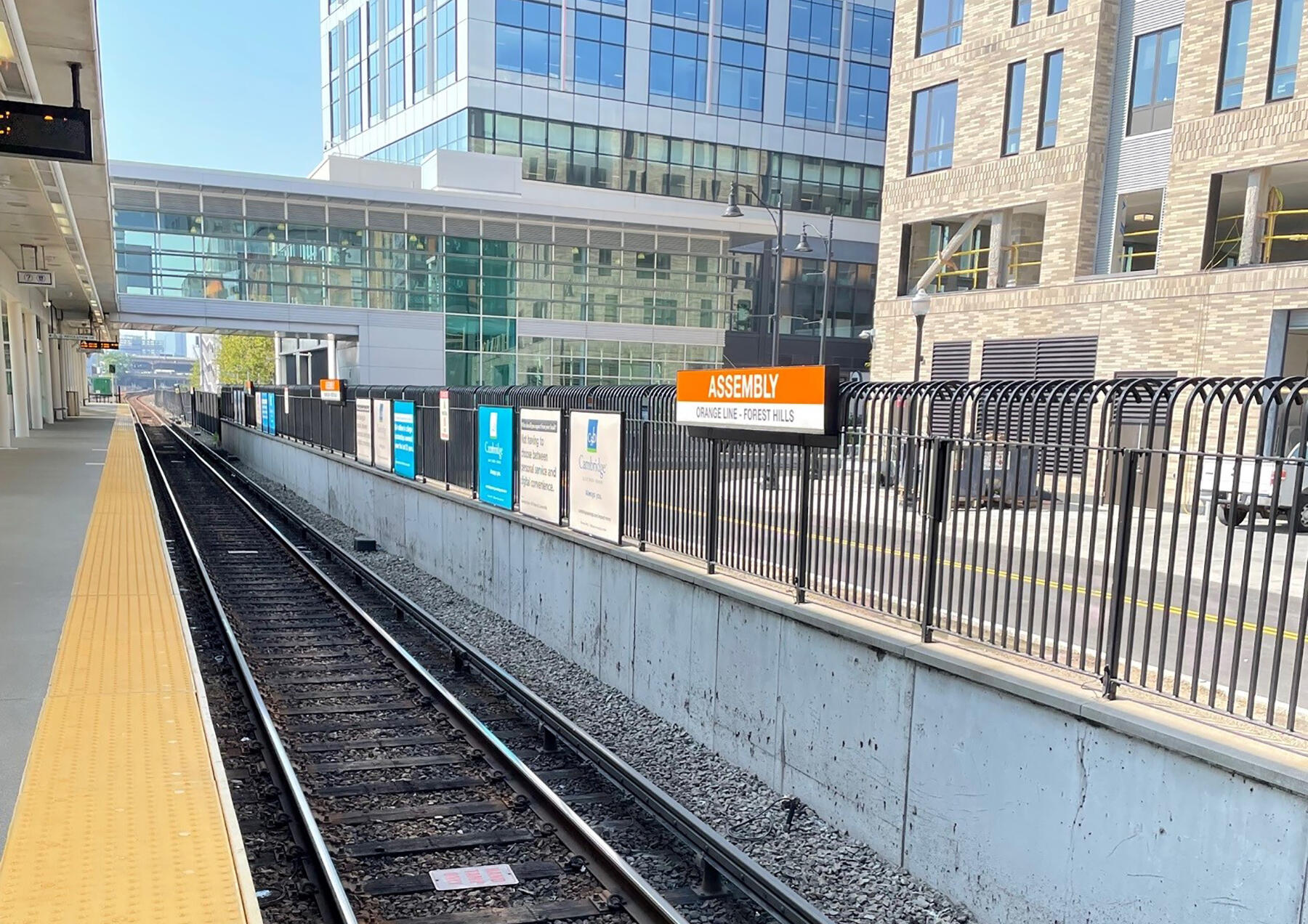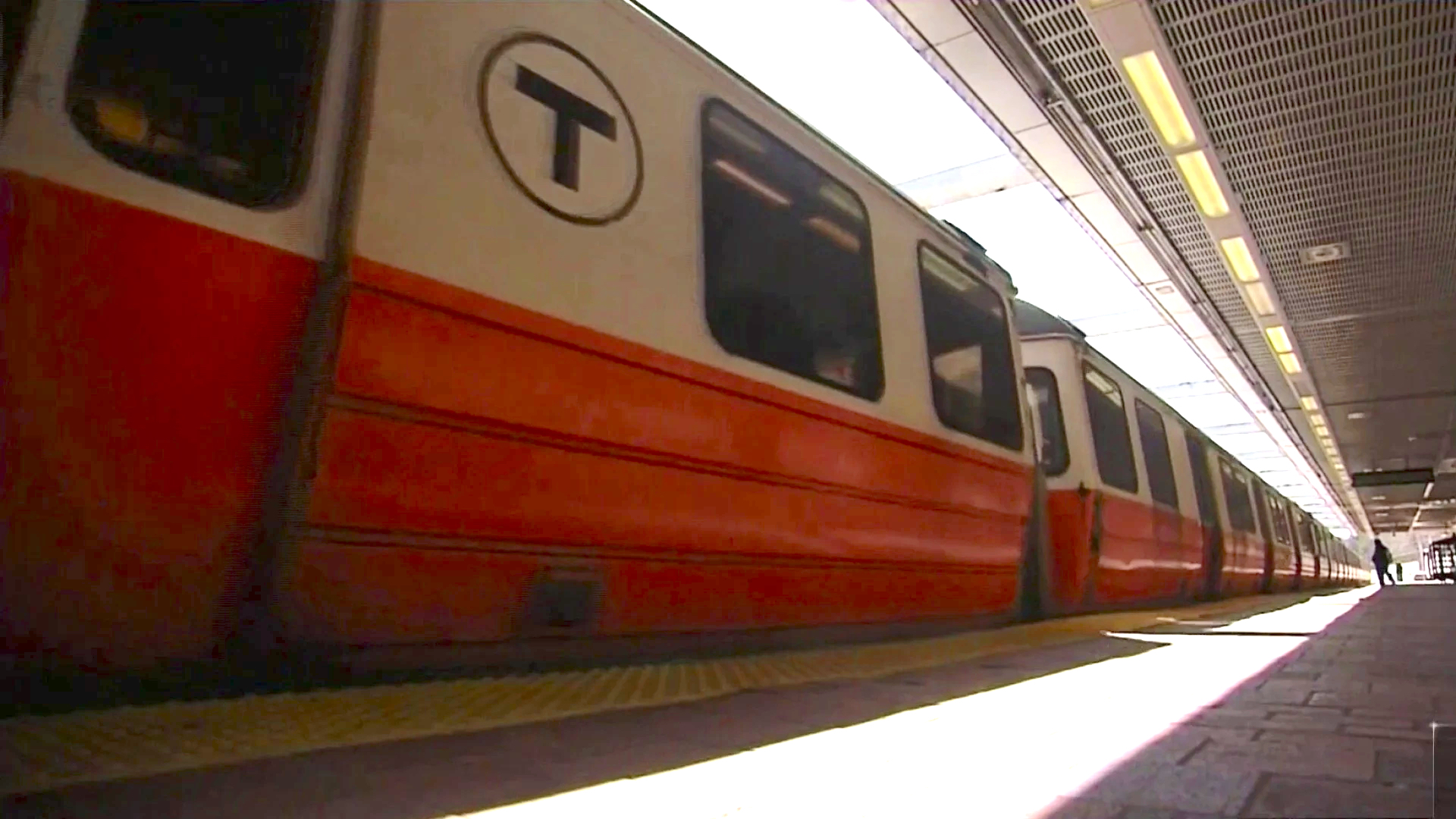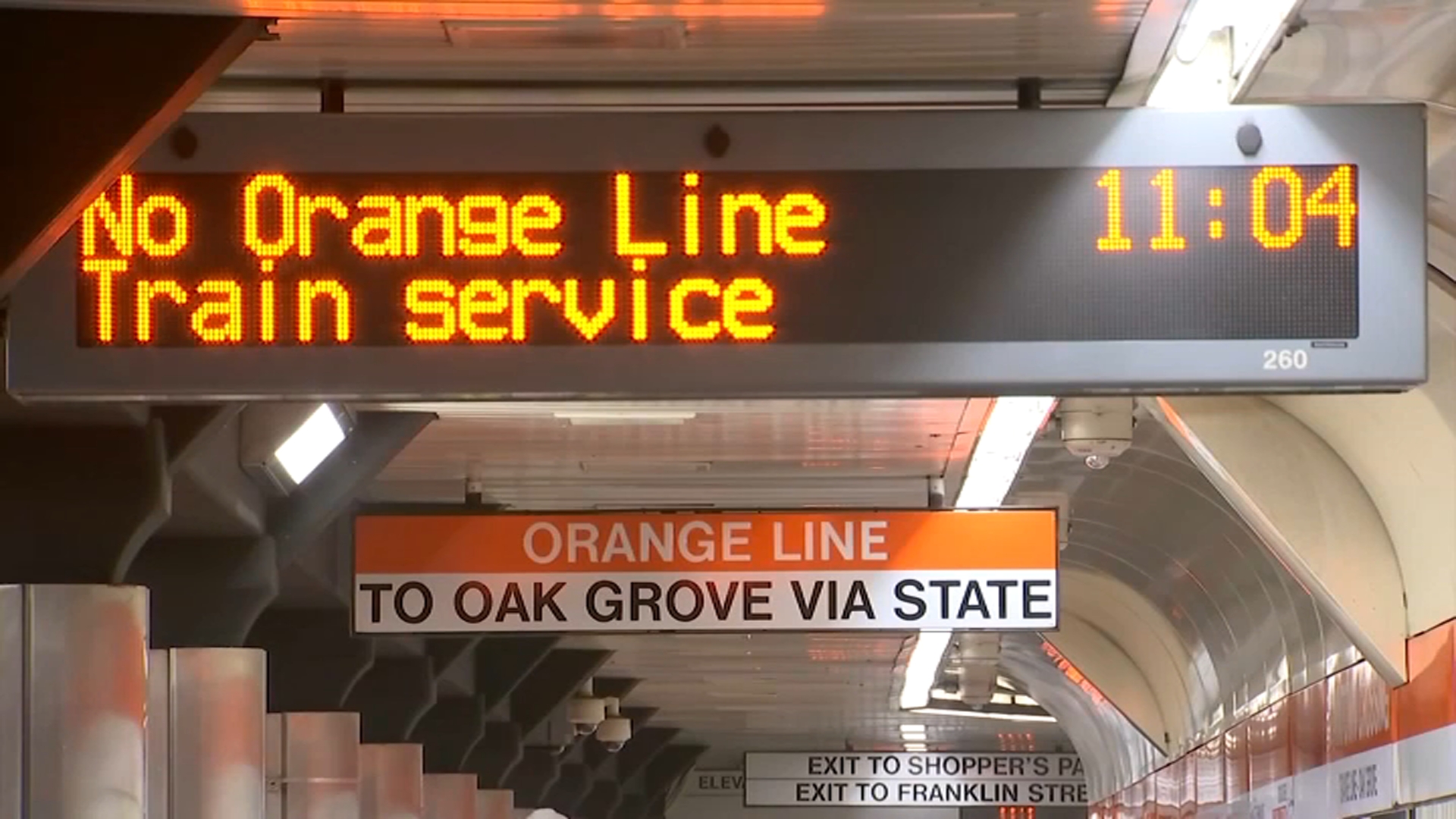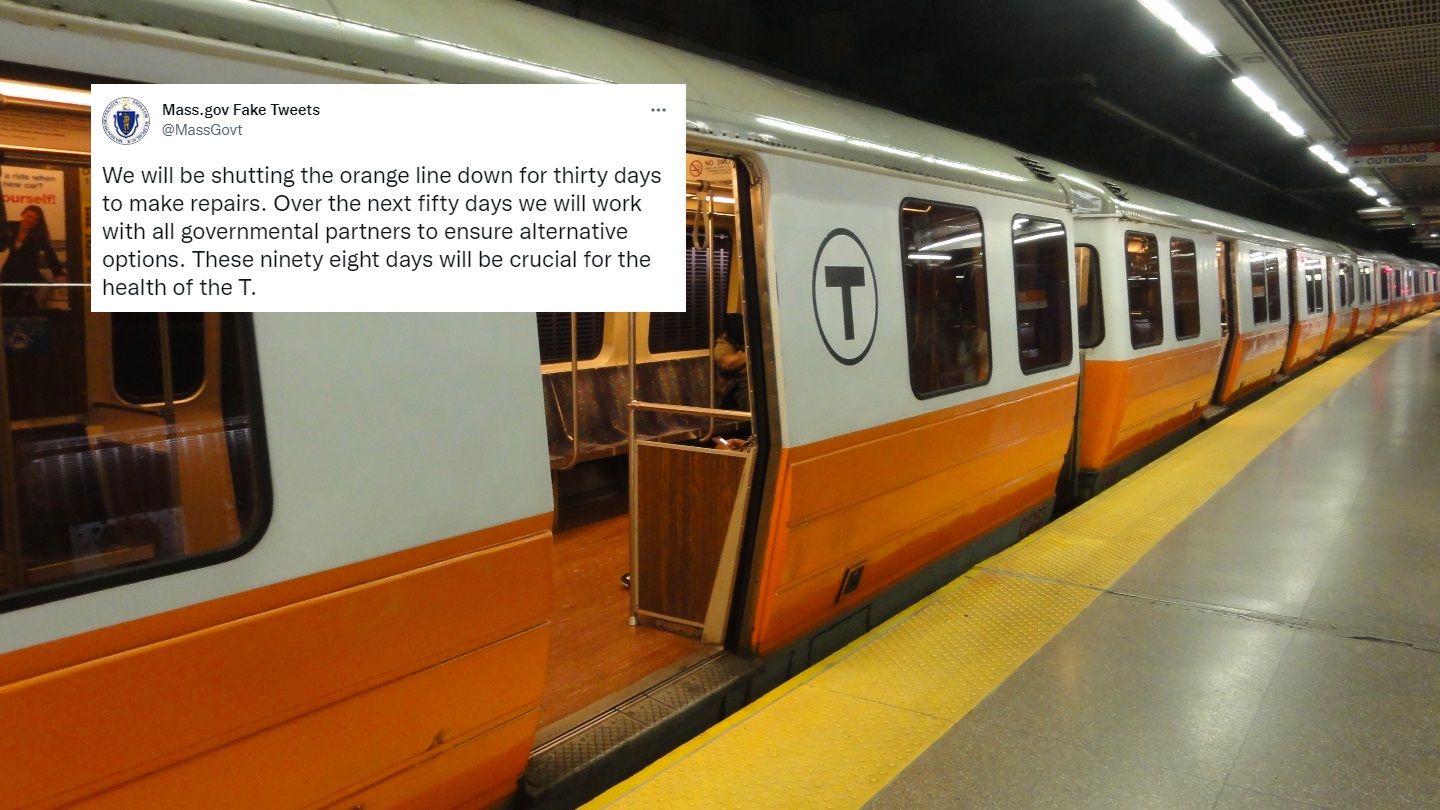The MBTA's announced 30-day shutdown of the Orange Line will affect commuters, students, businesses and people who rely on the T to go grocery shopping or to the doctor's office.
It's also expected to significantly add to traffic in the area, with 140 to 200 Yankee buses on the road every day, transporting the roughly 100,000 people who would normally be using the Orange Line. The one bit of good news is those shuttle buses will be free for all riders.
WATCH ANYTIME FOR FREE
Stream NBC10 Boston news for free, 24/7, wherever you are. |
The Orange Line will be shut down starting at 9 p.m. on Aug. 19, and it's not scheduled to resume service until 5 a.m. on Sept. 19.
The T said it needs the full 30 days to tackle the issues that have been plaguing the system for months, including addressing the problems identified in a recent Federal Transit Administration report.
Get updates on what's happening in Boston to your inbox. Sign up for our News Headlines newsletter.
While T riders know that these improvements need to be made, they are not looking forward to a full month without Orange Line service.
"I'm a T girl," Orange Line rider Alycia Meier said. "I don't drive. I've been behind the wheel five times. So what's the plan ahead? More Ubers and spending more money."
"If I have to take the bus, it means I have to wake up earlier," said Vivyane Mukamba. "It's too muh of my time to get to work. I like it to be easy and fast -- simple."
"It's just going to make me wake up earlier and make it harder for me to get where I need to be," said Geovanna De Paula.
Businesses are also concerned about the potential impact of the shutdown. There are countless retailers along the 20 stops of the Orange Line, which runs from Malden through Medford, Somerville, downtown Boston and Jamaica Plain.
"It's a huge thing for us," said Dominic Rioles of Malden Center Fine Wines. "We have this beautiful plate glass window at the front. It's a draw for people who are coming off the train. We get a lot of business that way. Any decrease in that is concerning for us."
"I just feel this is far too abrupt," added Rick Dimino of A Better City, a local business group. "I don't think it's fully thought through, and I also don't think you do it at the beginning of the first two weeks of September, which is a big deal in Boston."
In addition to shuttle buses, officials said regular Orange Line riders can also utilize commuter rail routes that connect to the Orange Line, where anyone will be able to pay for a Zone 1, Zone 1A or Zone 2 fare simply by displaying a CharlieCard or MBTA pass. The Haverhill Line will pick up and drop off passengers at Oak Grove, Malden Center and North Station, and on the south side, the Needham and Providence Line trains will also stop at Forest Hills, Ruggles, Back Bay and South Station.
MBTA General Manager Steve Poftak also suggested riders with flexibility should work from home whenever possible.
Even with the alternatives in place, the entire greater Boston region is in line for enormous commuting disruption during a busy summer stretch when businesses are still trying to recover from the COVID-19 pandemic, schools and colleges are preparing to welcome back students, and tourists are on the move.
"Decades of deferred maintenance -- compounded by a lack of urgency even in recent years -- has left us at a crisis point for the MBTA and the hundreds of thousands of commuters who rely on public transportation every day," Boston Mayor Michelle Wu said in a statement. "A shutdown of this scale will be tremendously stressful for the region, but I'm hopeful that doing this necessary work now will save us years of disruption down the line."
During the shutdown, workers will replace more than 3,500 feet of track that dates back 38 years, install upgraded signals at Oak Grove and Malden stations, replace two crossovers that manage train movement, and fix concrete, tracks and ties along the Southwest Corridor.
The project will also take aim at one of the pressing issues the Federal Transit Administration flagged amid its ongoing safety probe into the T, which Poftak described as the "impetus" for the new steps. Federal inspectors slammed the T for a backlog of delayed maintenance projects, several of which have left stretches of Orange Line track in such poor condition that the MBTA needed to lower the allowable speed limit in those areas.
Once the work is done and the T completes a subsequent inspection period, state officials said they should be able to lift speed restrictions, which will cut down travel times.
More on the Orange Line shutdown
"Rather than just a few hours on the overnight, we will have 30 days of completely unencumbered access to the Orange Line's 121,000 feet of track, our 20 stations and the entire right of way," Poftak said.
"When Orange Line riders return to the line on Sept. 19, they will arrive at deep-cleaned stations and experience a ride that is significantly better than the one that they left," he later added.
In Gov. Charlie Baker's mind, that's also why riders should feel safe and secure taking the Orange Line for the next two and a half weeks before the shutdown begins.
"Most of the issues we're dealing with here involve speed reductions and slowdowns," he said. "From our point of view, these projects were going to happen anyway. The issue here is to try to get them done faster and to get them done in a way that doesn't create this start-stop thing, which has been historically the way we've gone about doing these projects."
Another step Baker administration officials pledged to accomplish during the shutdown is an overhaul of the Orange Line's fleet.
So far, the MBTA has received 78 of the 152 new Orange Line cars it expects under a contract with Chinese firm CRRC. The agency expects to replace the entire fleet -- which today features many trains that are decades old -- by the time delivery is complete in April 2023.
Poftak said Wednesday that the "vast majority" of trains in service on the Orange Line will be the new CRRC-manufactured vehicles once service resumes after the month-long closure.
But there are still some hefty question marks looming over the project.
The governor and his team do not know how much the sweeping maintenance will cost. The only clear price tag that emerged Wednesday was on a $27 million to $37 million contract the MBTA's board unanimously approved with A Yankee Line, Inc. to provide up to 200 shuttle buses during the diversion.
"We're not worried," Baker said. "I mean, we have lots of capital money. That's not an issue."
Lawmakers moved to make hundreds of millions of dollars available to the MBTA to respond to the FTA's safety directives, including $400 million pending in an infrastructure bond bill on Baker's desk.
MBTA officials also have not decided exactly what route the shuttle buses will run or at which Orange Line stations they will stop. Poftak said his team is still working with Boston city officials to "optimize what the most efficient path of travel is."
"I'm being a little vague here because we're still working on it," Poftak said. "We're trying to come up with the best possible plan given what we've talked about, some of the constraints, but also trying to be thoughtful and creative -- what are some of the tactics we could put in place? I know people have raised great ideas like pop-up bus lanes and other dedicated bus priority infrastructure. Once we put a plan together that optimizes it, we'll come back out and we'll give you all the specifics."





